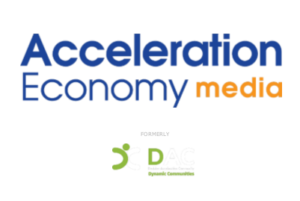Copilot Podcast: Microsoft’s Dewain Robinson Explains Ongoing Innovations to Copilot Studio
In episode 14 of the “Copilot Podcast,” host Aaron Back is joined by Dewain Robinson, Principal Program Manager for Copilot Studio and Conversational AI, Microsoft. The two discuss the various types of Copilots that are available to users, how Copilot Studio is redefining the user experience. and the upcoming innovations for Microsoft Copilot and Copilot Studio.
This episode is sponsored by Community Summit North America, the largest independent gathering of the Microsoft Business Applications ecosystem, taking place Oct. 13-17, 2024, in San Antonio, Texas. Register today to connect with thousands of users across the Microsoft business applications ecosystem at the for user, by user event.
Highlights
01:11 — Dewain is a Principal Program Manager within the Copilot Studio team. In his role, Dewain interacts with customers to observe the product from a “360 perspective across the whole product and figure out what gaps are within that.” His focus spans beyond specific features of Microsoft Copilot, focusing on the entire product itself. Dewain also has a YouTube channel where he creates educational content, how-to videos, and shares various generative AI and conversational AI features.
03:23 — Aaron references the Copilot mobile app advertisement that ran during the Super Bowl, which added to the “big explosion we’ve seen around Copilot, conversational AI, and so forth.” He asks Dewain how this is impacting the conversations he is having with customers.
04:47 — There are many different Copilots that are available, which can cause confusion for users. However, the introduction of Microsoft Copilot has been a major leap in the tech space, as this is a prime example of how a computer can “understand truly what you’re saying, and respond back to you with something that makes sense.” The advertisements that Aaron referenced are “really trying to bring consumer awareness of this innovation across the board.” The Copilot Studio team, Dewain explains, is focused on working on innovative ways to build conversational AI-type experiences and “bring them to traditional places.”
“In the end, it’s about bringing that experience to you and adding value, and making it quicker and more efficient to do things without necessarily having to rely on a human to be able to do it all.”
10:52 — Dewain explains the difference across the various types of Copilots, noting the three kinds:
- Copilots embedded into Microsoft Dynamics 365 products
- Purpose-build Copilot products
- Custom Copilots, which can be created in Copilot Studio
16:31 — Aaron notes how Copilot Studio is “redefining accessibility enablement” for users to create custom Copilots, regardless of their background in app development. He asks Dewain for his perspective on how Copilot Studio is redefining these areas.
18:43 — Dewain goes through the history of Microsoft and its development teams that would typically build custom solutions or products for users, and notes the drastic shift — now, low-code users can “jump in and get going” with various products and apps, bringing forth the extensibility of these products.
23:41 — Continuing on, Dewain emphasizes that “I think we’re gonna see an explosion of people really being able to start really at the low end and grow.” Aaron agrees that Copilot studio and related technologies enable a better collaborative experience across business and technical teams.
30:02 — With all the incoming innovation around Microsoft Copilot and Copilot Studio, Aaron asks Dewain to share what’s on the horizon for Copilot Studio. Dewain notes that a focus for the team is becoming multimodal, and “an explosion in the ability to interface with conversational agends where and when and how you want.” He notes a few other developments, including:
- Accessibility
- Channel and speech enablement
- More context in conversations with Copilot
“If you think you’ve seen a lot of innovation, you have not seen anything yet. Because what’s happening, people are just starting to understand this stuff, and figuring out what it can and can’t do. And we’re starting to really get to a point where it’s going to drastically change.”
Stream the audio version of this episode:


